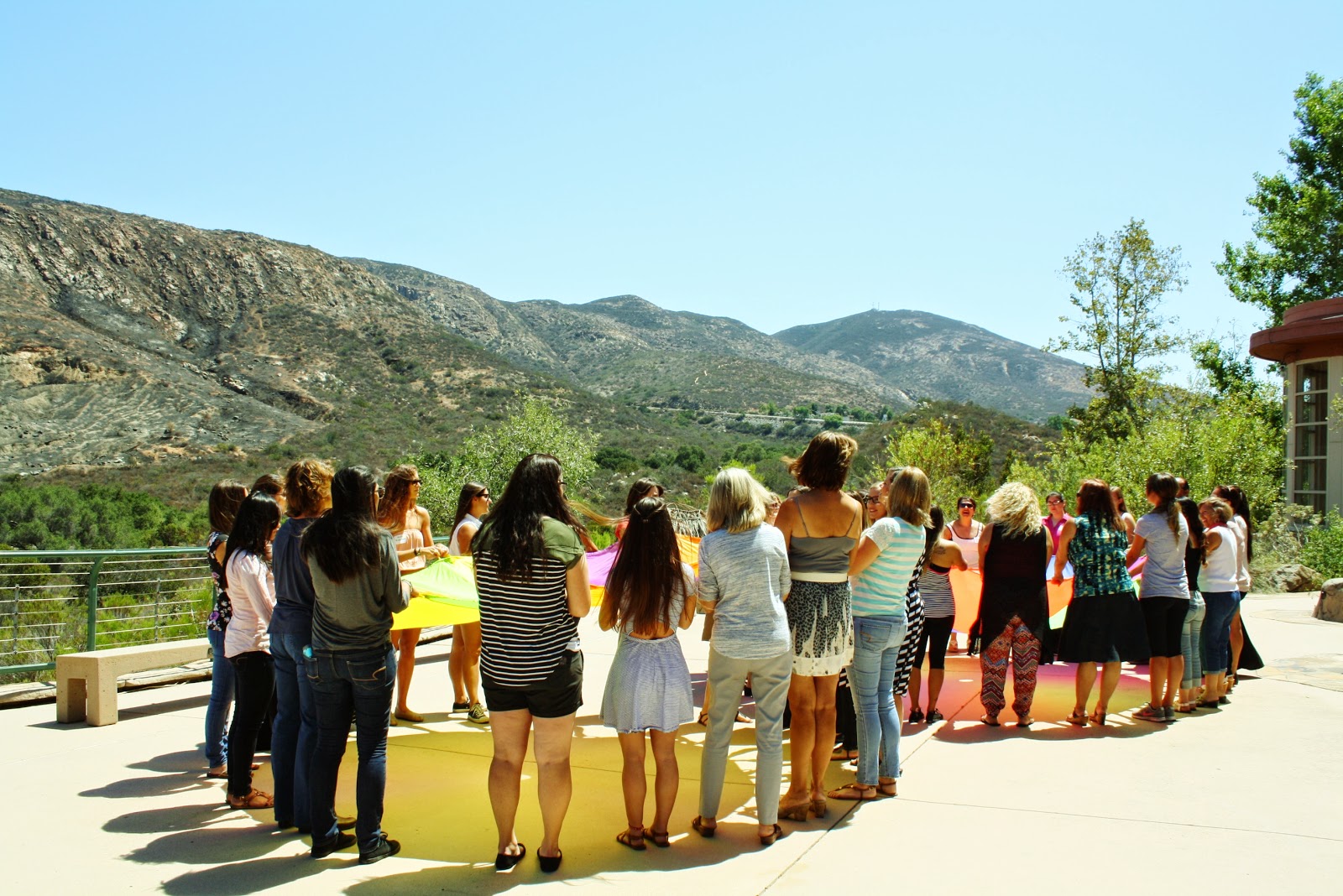Amy Gregory is a current student in the EC-SEBRIS Graduate Certificate program at San Diego State University. She shared what she is learning about becoming a change agent in the lives of children and the field early childhood education.
My experiences in the EC-SEBRIS program so far have been eye-opening, rewarding, and exciting. I never envisioned a graduate level program that could be so hands on, practical, and comprehensive. The EC-SEBRIS has encompassed all of these qualities for me so far!
I like that the information I am learning in my classes can be taken and directly applied to my work in the classroom. For example, thanks to my Ecobehavioral Assessment and Intervention class, I am able to pick out which assessment would be useful for each of my students. Then I can serve them better or get a better idea of their home life and family background.
Each class relates to one another in way that ties different areas of child development together that I had never considered before. Being able to analyze the teaching practices of others as well as your own in the reflective supervision class definitely makes you a change agent in recognizing best practices.
 |
| Presenting group research at the We Can't Wait conference |
Taking a class dedicated exclusively to reflective supervision is great. It is an opportunity to review and share videotape interactions of my teaching practices with my 18-month old class.
My reflective supervision group is very helpful in giving me constructive criticism on how I could improve my teaching practices as well as helpful tips on how to deal with some of the challenging behaviors taking place in my classroom.
Seeing myself teaching on videotape really helps me identify what I do well and what I can improve on. It gives me the opportunity to review things that happen in my classroom that I may have missed in the moment. Being able to view videotapes of my fellow students' interactions with children in their worksites is helpful to me too. I make mental notes of positive ways to interact with children and creative activities to do. Seeing several different early childhood work sites gives me ideas of how to design classrooms that are effective.
Having a reflective supervision group is like having free help to support what you are trying to accomplish. Being a first year teacher myself, I have greatly appreciated this free help as my support system during a new life experience!
For one of my classes I worked on a group project about the effects of adverse childhood experiences relating to premature deaths. We completed research and created a professionally printed poster on our topic.
It was the first professional poster I have ever made and having my own work reflected in such a manner made me feel high up in the world. We had the opportunity to present our posters at the Early Childhood Mental Health
We Can’t Wait Conference.
The opportunity to present at such a well renowned conference in the field made me feel like a real professional.
Getting the opportunity to share my research with other professionals in the field, get their feedback, and in some cases teach them something new felt great. Seeing so many people in one place who all cared about the growing field of child development made me even more excited about my future career.
The EC-SEBRIS Graduate Certificate program is housed in the Department of Child and Family Development at San Diego State University. Certificate courses can be applied towards a Master of Science in Child Development.
The EC-SEBRIS program will accept applications for Fall 2015 admission until March 2, 2015. For more information on the EC-SEBRIS graduate certificate program, visit our website.





.jpg)

